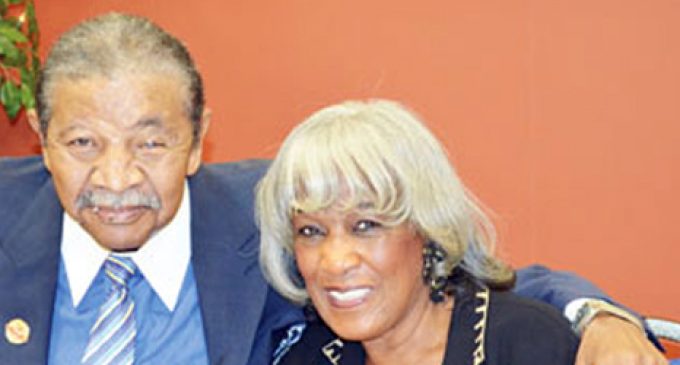Class of ’63 balanced classes with civil disobedience

The Winston-Salem State University Class of 1963 helped to shape the Civil Rights Movement and make inroads for those who followed them.
The past struggles and successes were a major topic of discussion last week during the class’ four-day 50th reunion, which coincided with WSSU’s Homecoming.
At an Oct. 10 banquet at WSSU’s Enterprise Center, Chancellor Donald Reaves praised the class for its bravery and service, and Decie Gunn fondly recalled taking part in the “Movement.”
“All the things that were being protested, we were part of that,” said Gunn. “It really gave you a lot of pride to know that this was happening.”
Gunn, a retired educator who now resides in Detroit, grew up in the city and walked to classes at WSSU. Her husband, Alton Gunn, attended N.C. A&T with the Greensboro Four, who staged a historic sit-in at a downtown Greensboro Woolworth in 1960. She fondly remembers marching here in Winston-Salem and sitting on the courthouse steps singing protest songs to support fellow protestors who were arrested.
Soon after the Greensboro sit-in, a similar sit-in, led by Carl Matthews, was held at a downtown Kress lunch counter. It was historic because students from WSSU and Wake Forest University took part. Never before in the South had black and white students sat shoulder-to-shoulder for a sit-in.
Former lawmaker Larry Womble was among the WSSU students who took part in the sit-in, which lasted for 107 days and spread to several segregated downtown lunch counters.
During his time at WSSU, then called Winston-Salem Teacher’s College, Womble was president of the class’ Student Council and the school’s Student Government Association. He said back then, the school was close-knit.
“It was small enough to know everybody and big enough for us to accomplish the things that we wanted,” said Womble.
Reunion co-chair James Jarrell is from Greensboro and attended high school with members of the Greensboro Four. He would return home to Greensboro frequently to take part in protests.
Jarrell, a retired librarian who worked at UNC Greensboro, A&T, N.C. State and the Greensboro Public Library, said that WSSU did well to prepare his class to make its mark on the world.
[pullquote]“Though there might have been color barriers, I felt I was just as good and prepared to work in this changing society[/pullquote]”
Co-chair Rosa Tribble Wilson, also from Greensboro, met her husband, Haywood L. Wilson, during a weekend visit to tour WSSU. She was a cheerleader and was Miss WSSU, while Haywood became SGA vice president. They both found time to participate in protests.
While Tribble Wilson became a teacher, her husband returned to WSSU as vice chancellor of Student Affairs and acting chancellor from 1984-1985. He passed on being nominated for the permanent position, which went to Cleon F. Thompson. Mr. Wilson died in 1992 and, in 1994, a co-education residence facility, Wilson Hall, was dedicated in his name at WSSU.
Tribble Wilson said she made many bonds as a student that still endure today.
“I think that was one of the things that I most now treasure – the close relationships from my husband on down to friends,” said Wilson, who serves on WSSU’s Board of Christian Campus Fellowship.
See the entire photo gallery here: https://www.facebook.com/media/set/?set=a.656048017760737.1073741845.355902327775309&type=1&l=4cc8410d8b


















